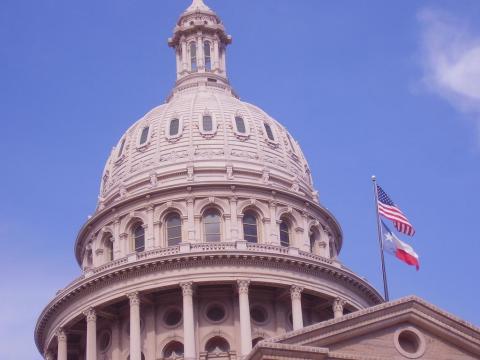Southern CitiesFace Growing Efforts by State and Federal Officials to Block Local Progress
Last year, Charlotte, North Carolina, was blocked by state lawmakers from enacting a policy to protect transgender bathroom access and LGBT rights. That same year, the state of Alabama overturned a local minimum wage increase in Birmingham. And in 2015, residents in Denton, Texas, lost a battle with state officials to keep fracking out of their town.
In 2017, similar efforts to undermine local progressive policies appear to be gaining steam as Southern legislatures convene and the Trump administration unveils its policy agenda.
Already, 11 states, including five in the South, have introduced statewide policies requiring people to use bathrooms in accordance with the sex on their birth certificates — a move to preempt local transgender rights ordinances — despite the economic fallout precipitated by a similar bill in North Carolina last year. In Virginia, a bathroom bill was quickly defeated in committee, but a similar measure is being heavily pushed in states like Texas.
In South Carolina, lawmakers are considering a bill that would preempt localities from acting to improve job standards and benefits. If passed, that law would add to a slew of state preemption laws nationally that target local policies like minimum wage increases and paid sick leave requirements.
Making headlines this week are also state and federal efforts aimed at pro-immigrant cities.
Making headlines this week are also state and federal efforts aimed at pro-immigrant cities, often referred to as "sanctuary cities," which limit local involvement in federal immigration enforcement to protect immigrant rights and promote public safety. President Donald Trump announced an executive order on Jan. 25 to ban sanctuary cities nationwide.
Several mayors have pledged to continue their policies that separate immigration from other criminal justice matters, although Miami-Dade's mayor became the first to announce an end to the county's sanctuary city policy following the executive order
In the South, some states like Florida had successfully fought back sanctuary city bans, but many others have already passed laws compelling local police to coordinate with federal immigration officials, despite only a handful of cities in the region having policies to the contrary. Lawmakers in Arkansas and Texas are currently pushing legislation to add their states to the list of those enforcing sanctuary city bans.
Growing tensions in the South
State meddling with cities pushing progressive agendas has been a growing trend in the South and across the country, reflecting a widening political and demographic gap between the fast-growing, diverse and often Democratic-led cities on one hand, and conservative state lawmakers, many hailing from rural areas, on the other.
The rift is one that many expect will continue to grow now that Southern legislatures are entirely Republican-controlled. In the 2016 election, Democrats lost control of the Kentucky House, the last state legislative chamber in the South where they had a majority. Now, Republicans hold majorities in legislatures across the South. Nine out of 13 Southern states also have Republican governors, forming a GOP "trifecta."
At the same time, urban centers in the South continue to grow and amass political clout. Southern cities are among the fastest-growing in the nation, attracting newcomers from around the country and around the world. Most are governed by Democratic mayors and city councils, setting the stage for showdowns with state lawmakers.
A change in leadership in Washington adds a new dimension to the issue. President Donald Trump's administration could enact federal preemption of state and local laws, as it has done on the issue of local immigration enforcement. Some have also observed that conservative state lawmakers may feel emboldened to move on preempting local bathroom bills and other rights ordinances, given that the Trump administration and the president's attorney general pick, U.S. Senator Jeff Sessions (R-Alabama), aren't likely to challenge these measures in court.
But local officials intend to stay on the offensive, using their growing metro areas as a base to fight back against preemption efforts and expand progressive policies. North Carolina's preemption law involving transgender rights and Alabama's overturning of Birmingham's minimum wage are both being challenged in court. In Austin, Texas, the newly-elected local sheriff has followed through on her campaign promise of making Austin a sanctuary city in the face of state and federal opposition.
And in Florida, the mayor of Tallahassee, Andrew Gillum, kicked off the year launching a new Campaign to Defend Local Solutions aimed at challenging the broader trend of preemption against local progress.
"This effort … will send a message to state lawmakers," Gillum wrote in an op-ed as he launched the campaign, "and give citizens around the country the tools to push back against special interest groups and large corporations, and maintain their right to put forward local solutions to the issues facing their community."
Allie is the associate director at the Institute for Southern Studies and a writer for Facing South. Her research focuses on demographic change, immigration, voting and civic engagement.


Spread the word